Search
Remove Ads
Advertisement
Summary 
Loading AI-generated summary based on World History Encyclopedia articles ...
Search Results
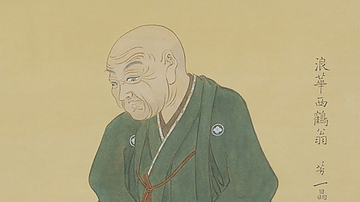
Definition
Ihara Saikaku
Ihara Saikaku (1642-1693) was a Japanese poet and novelist who played a leading role in creating the so-called ‘floating world’ (ukiyo-zoshi) genre of popular literature in the 17th century. His work was significant because, in terms of both...
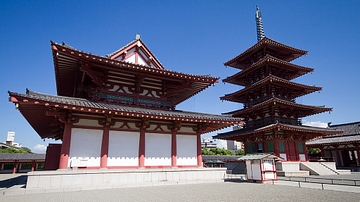
Image
Shitenno-ji Temple, Osaka
The Buddhist Shitenno-ji temple in Osaka, Japan. Reportedly founded by Prince Shotoku in 530 CE.
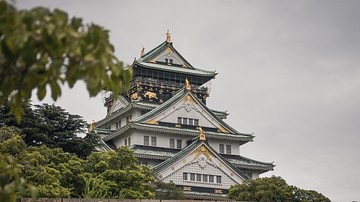
Image
Main Tower, Osaka Castle
The main tower of Osaka Castle in Japan, built 1584.

Article
Japanese Castles
Fortifications of one kind or another had been used in Japan since ancient times, but in the period from 1576 until 1639, a new and distinctive style of castle was constructed. Rather than being used for fighting, these were impressive structures...
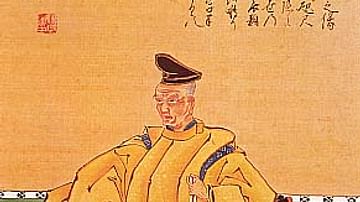
Definition
Chikamatsu Monzaemon
Chikamatsu Monzaemon (1653-1725) was a Japanese playwright who wrote for both the puppet theatre and kabuki. He is regarded as Japan’s greatest dramatist. Apart from their aesthetic appeal, his plays are of value because they provide an insight...
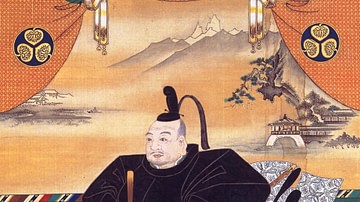
Definition
Tokugawa Ieyasu
Tokugawa Ieyasu (1543-1616) was a Japanese military leader who reunified Japan at the beginning of the 17th century after a long period of civil war, known as the Warring States or Sengoku period. He created a new government controlled by...
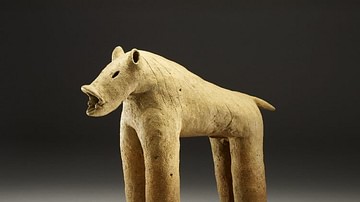
Definition
Kofun Period
Following the Yayoi Period of Japan when farming and metalworking techniques were introduced from mainland Asia was the Kofun Period (c. 250 CE - 538 CE) where the religion of Shinto emerges from the beliefs of previous eras and the Yamato...
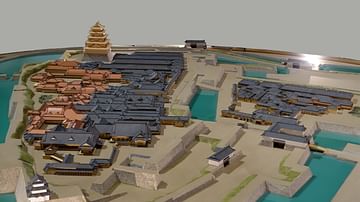
Definition
Edo Castle
Edo Castle was a large castle built by the Tokugawa family in 17th-century Japan. It served as their seat of government for more than 260 years. After the Meiji Restoration of 1868, Edo became the capital of Japan and was renamed Tokyo. Edo...
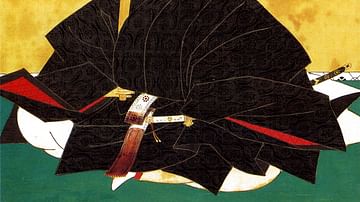
Definition
Tokugawa Tsunayoshi
Tokugawa Tsunayoshi (1646-1709) governed Japan as the fifth shogun of the Edo period (1603-1876). He has often been ridiculed as the 'dog shogun' because of the laws he enacted to protect the lives of animals. Economically, however, the period...
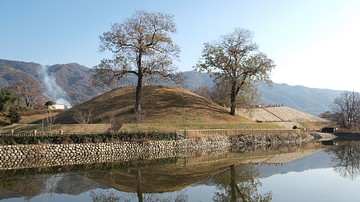
Definition
Kofun
Kofun (old tumuli) are large artificial mound tombs built in ancient Japan for the ruling elite between the 3rd and 7th century CE. Many measure several hundred metres across, are surrounded by a moat, and, besides containing valuable bronze...